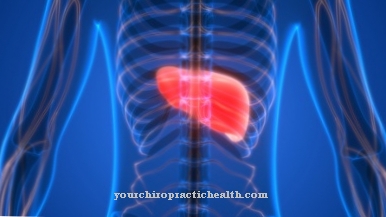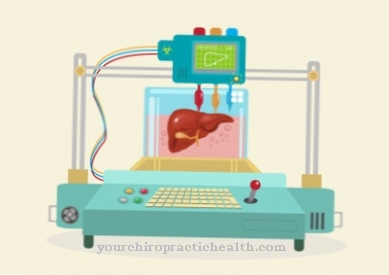Faith can move mountains. In fact, this is not just an empty phrase, it can become a reality. Because this is exactly what the so-called works with Placebo effect.
What is the placebo effect?

A placebo is primarily a drug that only serves as a sham and has no pharmacological effect. In their appearance, placebos are usually confusingly similar to drugs such as capsules or tablets, but do not contain any active ingredients for ailments or diseases. In this context, the so-called placebo effect describes the supportive effect of a drug, which results solely from the patient's belief.
Usually, the placebo effect mainly summarizes positive changes in well-being. It doesn't have to be just a sham treatment that causes such an effect. Placebo effects can occur in almost any medical treatment, including operations, for example. The results after a sham treatment are often medically astonishing. So the effects can be similar to those of a real therapeutic treatment.
The mode of action of placebos has not yet been clearly clarified. More recent studies from 2005 showed psychosomatic effects. According to this, experts assume an endorphin output, which has a positive effect on health. However, the placebo effect does not work equally well for everyone. The extent of its benefit depends on the activity of the endorphin system as well as the self-healing powers of the respective body and the patient's confidence in the success of the treatment.
Function & task
The placebo effect can be of great therapeutic importance. For example, placebos are used for psychosomatic illnesses to alleviate the symptoms without potentially harmful drugs. They are also used for diseases for which conventional medicine has no other treatment options.
Nevertheless, the possible damage to the basis of trust between doctor and patient is regarded as worrying. Many medical professionals forego placebo treatments in order not to abuse this trust. In addition, the placebo effect has no effect on patients who know about taking placebos. Here, too, the high effectiveness of faith applies. The effect has a special function through the expectation (suggestion) of the patient.
In addition to placebo therapy, dummy drugs are also used in research. The effect of the drugs to be tested (verum) can be studied on test subjects by double testing. If a difference in favor of the verum is found in both test runs - once with placebos and once with real medication - its effectiveness becomes apparent. These test runs are an important prerequisite for deciding whether or not a drug is approved by the authorities.
The results are influenced by the double blindness of the subject and the doctor. Neither the doctor nor the patient know which preparation the verum is administered. The studies are also randomized. The patients are determined by chance in order to prevent additional falsifications.
Overall, placebo therapy always plays a more or less important role in all therapeutic measures, since the patient's mind has a decisive influence on the healing process.
You can find your medication here
➔ Medicines to strengthen the defense and immune systemIllnesses & ailments
However, there is also one or two disillusionment about the placebo effect. Only around a third of all sick people jump on placebos. How big the effect is depends on the overall condition and in particular on the psychological state of the patient.
Conversely, the effect of drugs can also be limited if the sick person does not believe in their effect. Conversely, if he is of the opinion that he will no longer get well or that he is taking the wrong medication, he can also reduce its effectiveness.
In addition to the placebo effect, the term nocebo effect has emerged. The term comes from the Latin “nocere” and means something like “harm” or “I have harmed” (Latin nocebo). The expression describes a negative illusory effect of a drug. So it relates - analogous to the placebo effect - to preparations that appear to have a negative impact on health.
This effect can be achieved, for example, if the patient has already heard negative things about the drug in question and is subsequently forced to take it himself. These side effects do not have to be listed in the package insert. Belief in the negative traits is derived from the experience of others. If these people are close to the patient or if they have special credibility for whatever reason, the nocebo effect becomes all the more likely. As with the placebo effect, it is a self-fulfilling prophecy.
On the other hand, the nocebo effect can also occur when people are sensitive to the side effects listed in the package insert. Under certain circumstances, the person concerned can find read symptoms that he would never have noticed without reading the information.
That being said, the type of medication prescribed can have a profound effect on patients' moods. For example, if a strong antidepressant is prescribed to people with a mild, psychological upset, the person affected may think they are sicker than they are. This sometimes leads to an intensification of the psychological stress and thus also the symptoms.
Since the head plays a decisive role in the placebo effect, the effect can rarely be generalized. A distinction must always be made from patient to patient.
























.jpg)



